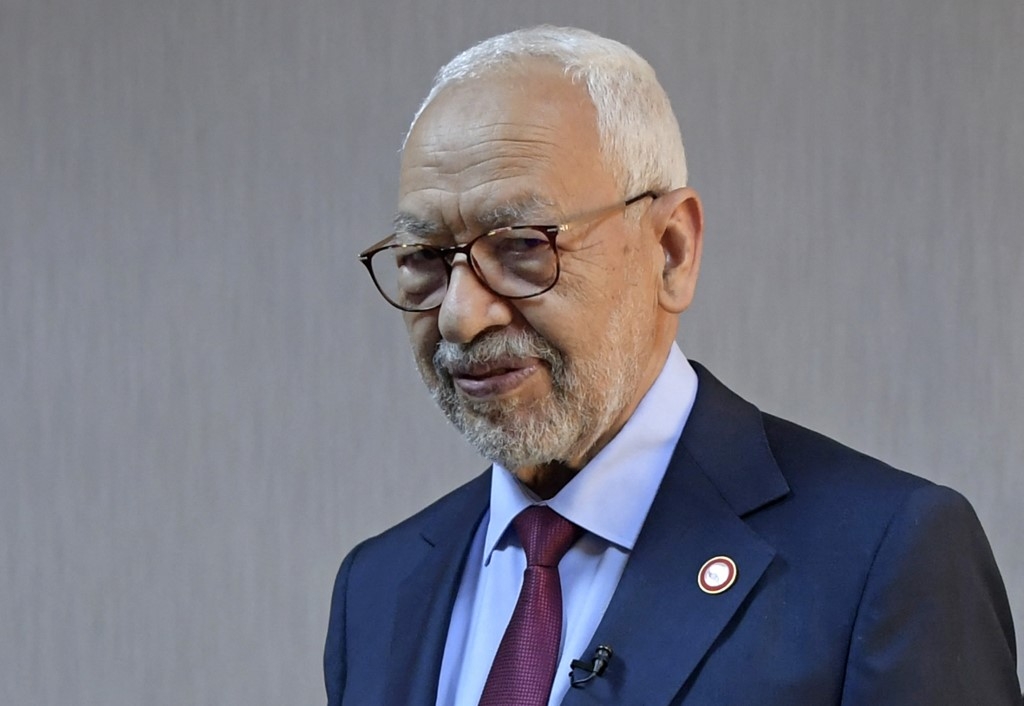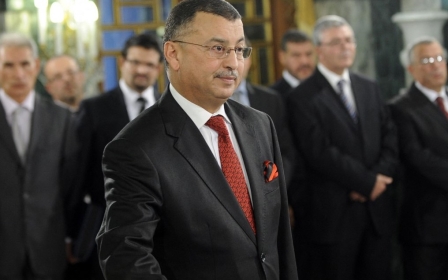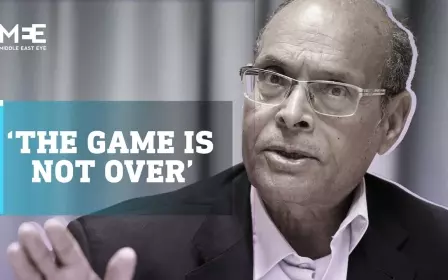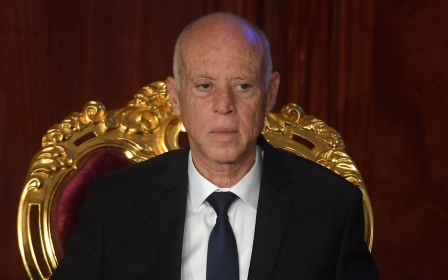Tunisia's Ghannouchi not notified of travel ban against him

Tunisian political party Ennahda denied late on Friday that a travel ban had been issued against its leader and speaker of the country's now-dissolved parliament, Rached Ghannouchi.
Fatma Boukotaya, the spokesperson for a lower court in the Tunis suburb of Ariana, said on Friday the court had issued a ban against Ghannouchi and 33 more people.
Speaking to Mosaique FM radio, Boukotaya said the ban was issued in connection with an inquiry into alleged obstruction of justice and other corruption allegations.
Ennahda then released a statement saying that Ghannouchi has not been notified of any travel bans from any court, although he does not plan to leave the country.
It also denied any alleged wrongdoing in the ongoing inquiry and slammed the travel ban news as a form of "distraction".
New MEE newsletter: Jerusalem Dispatch
Sign up to get the latest insights and analysis on Israel-Palestine, alongside Turkey Unpacked and other MEE newsletters
"Ennahda considers what is happening a systematic process to distract the public from paying attention to real concerns of the political and economic crisis caused by the coup against the constitution," it said, referring to sweeping power grab measures taken by President Kais Saied since July 2021.
"Ennahda affirms that Mr Rashid Ghannouchi remains under the authority of a fair and independent judiciary at all times, because of his belief that the alleged 'secret body' case is made up and fabricated by the commission of destruction and falsification."
Saied's 'coup'
Ghannouchi, 81, is a veteran politician who heads the Islamist-inspired Ennahda party that rose to prominence in Tunisia's post-revolution politics.
He has become one of the leading critics of Saied, who last year suspended the Ennahda-dominated parliament, assumed executive powers, and later announced he would rule by decree, in a plot that was leaked to Middle East Eye two months before it was enacted.
Saied, a former law professor, was initially backed by Ennahda when he ran as an independent in the 2019 presidential elections.
Since his power grab last year, which has been called a coup by critics, Saied has shut down the country's independent National Anti-Corruption Authority, sidelined the Independent High Authority for Elections, dissolved the Supreme Judicial Council - the body that oversees judicial independence - and granted himself control over the selection and promotion of judges.
His measures have been rejected by the majority of political forces including Tunisia's powerful labour union, the UGTT. But he has launched a crackdown on the opposition and their protests. Many have faced trials before military and civilian courts and given jail sentences for charges denounced by rights groups as politically motivated.
His power grab has stoked fears of a return to autocracy in a country where the 2011 revolution is widely seen as the trigger for the pro-democracy Arab Spring movement that spread across the wider region.
Saied, who says his actions were both legal and necessary to save Tunisia from an "imminent threat," is rewriting the democratic constitution introduced after the 2011 revolution and says he will put it to a referendum in July.
While Saied has focused on restructuring Tunisian politics, a looming economic crisis threatens to unravel his plans, as the government struggles to finance its 2022 deficit and repay debts.
Middle East Eye delivers independent and unrivalled coverage and analysis of the Middle East, North Africa and beyond. To learn more about republishing this content and the associated fees, please fill out this form. More about MEE can be found here.





